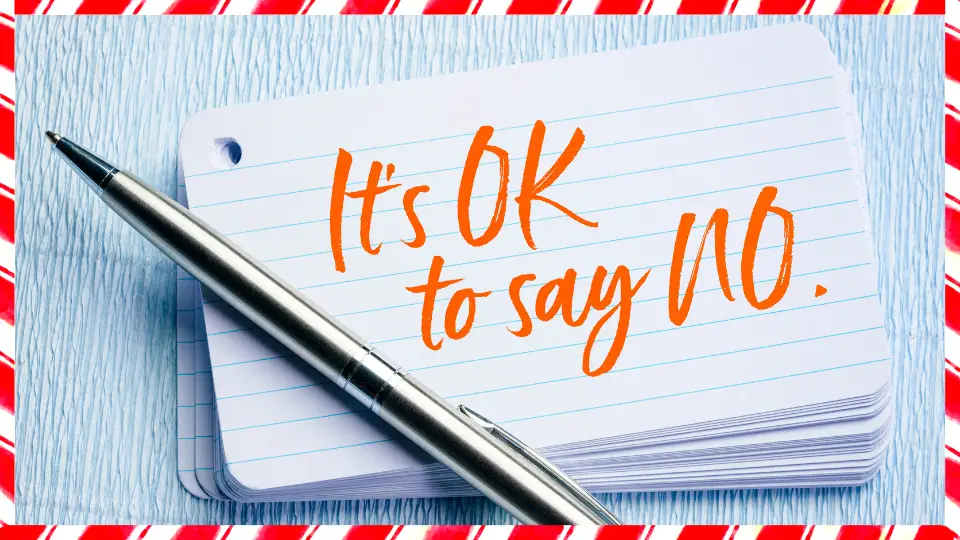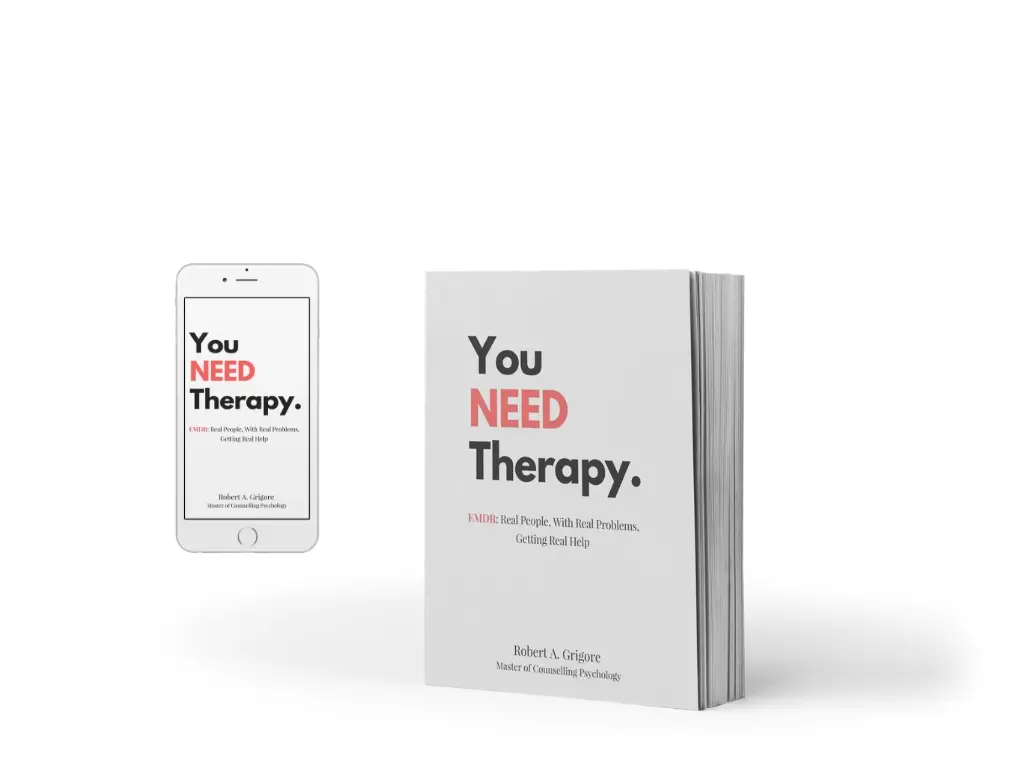The holidays are upon us and that means it’s time for some egg nog, turkey, presents, and…family. Regardless of whether or not you celebrate Christmas or some other holiday tradition, the thought of visiting with family can instill in a lot of people “Christmas Fear” instead of “Christmas Cheer.” I’m going to pass along 5 Tips for Avoiding the “Christmas Crossfire.”

1. Don't over-do it
Delegate some tasks to others and try to balance your time out appropriately. People who tack on too many tasks during the holiday season tend to feel more worn-down than before the season started. Think about all that cooking, baking, cleaning, shopping, present wrapping, outside decorating, inside decorating, tree decorating, photo-taking, card writing, communicating with distant relatives, and the list can go on and on for many people.
It’s so important to take things more slowly, and perhaps even allow for some things to get done later than normal. If you can get some help from other family members or friends, your combined effort can go a long way–plus you get to bond with them further and improve your relationships! Who said Christmas Elves weren’t real?

2. Know your limits and enjoy responsibly
For many of us, the phrase “holiday season” can only mean one thing: over indulgence in food, deserts, and alcohol. The more substances that you put in your body over the holidays means that you increase your risk for health concerns, accidents…aaaaannnnd family quarrels. People tend to be a little bit more forthcoming about their frustrations after having too much “Jolly Juice.” Just as you do throughout the rest of the year, please know your limits–while I certainly recommend letting yourself be a bit more relaxed about alcohol consumption, having too much can ruin the day–for you, and for others.

3. Respect boundaries
Just like “knowing your limits” is important regarding food and alcohol consumption, “knowing the limits” of yours and others’ boundaries is crucial to avoiding the “Christmas Crossfire.” We all have physical and psychological “boundaries;” they are like walls within us. Some people have more “walls” than others, and not everyone appreciates an “open concept” design. Just as “boundaries” can be likened to walls that create distance and separation between the dining room and the bathroom, boundaries create separation between you and another.
Boundaries help to create safety because they protect us from vulnerabilities. We all have vulnerabilities, but not everyone appreciates sharing these vulnerabilities with others. Being forced to share something private with others is just like being forced to share your body with another against your will. If you can trust that another isn’t going to overstep their boundaries with you, and that when they do (because this will happen, as people are not perfect), they respond with care by acknowledging mistakes, and making the necessary adjustments. When you can count on others to respect your boundaries and not violate your vulnerabilities, you can begin to view them as a trustworthy person, and you may then choose to share more of yourself with them.
Having predetermined topics that you will or will not discuss, and just how much you want to explore in these conversations can be the preparation that’s needed to keep you feeling safe over the holidays. If you feel that someone is “pushing” you too far, politely say the following: “I’m afraid I no longer wish to discuss this topic with you, or anyone else at this time.” If they keep trying to pressure you to talk about that issue, simply repeat in a soft tone but slightly louder: “I’m afraid I no longer wish to discuss this topic with you, or anyone else at this time.” If they continue to pressure you, repeat the same sentence, but this time speak it s l o w l y, and distinctly, in a monotone voice. This is indicating that you are not budging. If they STILL continue to pressure you, I would suggest that you simply walk away, and file that interaction away in your mind for another time–that individual or group are either not aware of interpersonal boundaries, or simply do not care about yours. These are not the people that promote trust and safety.
Before moving on, I can’t encourage you to respect your own boundaries, without respecting the boundaries of others. Keep yourself aware of when others don’t appear comfortable talking or engaging with you. This doesn’t mean there’s something wrong with you, or that they are rejecting you, it means that they are feeling vulnerable and are in need of their personal space. Do not force them, in fact mention to them that you recognize they do not wish to talk about that topic at the moment, and that you will respect their boundaries. This goes very far with others. Imagine if someone were to pull you out of the bathroom while you were in the middle of using it, and drag you to the dining room table. That’s what forcing someone to engage with you when they prefer not to. Remember: don’t shit where you eat.
The holidays might not be the best time to bring up past hurts and frustrations. If you absolutely need to communicate about something to someone, I would suggest doing so in private. This tells the other that you respect their privacy. I would also recommend that you offer them the opportunity to “pass” on the conversation, and that you’d appreciate the chance to talk with them in the future, at a time that suits them better.

4. Trust the triggers
The holiday season can be a very “triggering” occasion for many people. People tend to be reminded of negative experiences of the past that have occurred with other family members as well as death and losses to the family. For many others, the holidays are packed with nostalgic memories from joyous occasions; sometimes this is a recipe for depression–especially if the joy is considered “to be missing.”For those that struggle with abusing substances, the aforementioned experiences can trigger uncomfortable feelings, which are often muted by using substances. This matter is made any easier with the amount of media advertisement for various alcohol commercials, and family-friendly T.V. and movies.
Being “triggered” is something that can be quite subjective for each individual. Some people may see “flashes” of old memories and experiences, others may remember any combination of the five senses, others may notice an emotional change, or simply physical sensations that don’t seem to be connected to any memory. Others can even “just know” that “something is up” inside, and not have any recollection as to a reason why.
If you feel triggered during the holiday season, the first and most important thing to do is to allow yourself the freedom to notice that you are feeling triggered. Being triggered is a normal human response, you’re not going “crazy.” Take a few moments to ground yourself: look around the room and notice as many details of the objects and colours as you can; feel the ground if you’re standing, or the seat if you’re sitting; allow your body to feel the weight of the age you are today…how old are you? It is also helpful to grab some fresh air, and a cup of water (if you’ve had too much “Jolly Juice,” caffeine, or nicotine, you can be at increased risk for triggers. Try to engage in conversation with a “safe person” and focus on their mouth moving, and the words they are saying.
If you feel particularly triggered, you might benefit from the “free gift” at the bottom of this post. If nothing is working for you, and you feel “in danger” of hurting yourself or someone else, please call 9-1-1. If it’s “not that bad” but you’re having quite a bit of difficulty relaxing and grounding yourself, you may try to contact a crisis line in your area. The Vancouver Crisis Line is: (604) 872-3311. You are also more than welcome to email or call me at the information provided below. I’m happy to help.

5. Treat your inner-child with loving kindness
Finally, the holidays are “supposed” to be about love, sharing, gratitude, and kindness. Who enjoys a holiday like Christmas, more than children? It’s important to remember that you were once a young child, and that young child still lives somewhere inside your inner-mind. It can be a wonderful treat for creating a relaxing atmosphere for yourself, if you can give yourself some time to let that “inner child” play. My inner child likes chocolate, ice cream, video games, movies, and reading books.
What does your inner child like?
You don’t need to “spend the day” as your inner child, just give that child a 15-30 minute break somewhere during the day to play. If you’ve already had practice with knowing your inner child, you can begin to provide aspects of the holiday that may have been missing during your childhood. For me, I got lots of presents and space to play, but I felt alone often. So what I really need is to communicate with others about my boundaries and have real conversations about my internal experiences, and to share in hearing the experiences of others.
I hope you enjoyed this post, and may it be helpful in bringing a bit more joy to your festivities.
Please share if you found this post helpful!
______________________
With care and respect,












